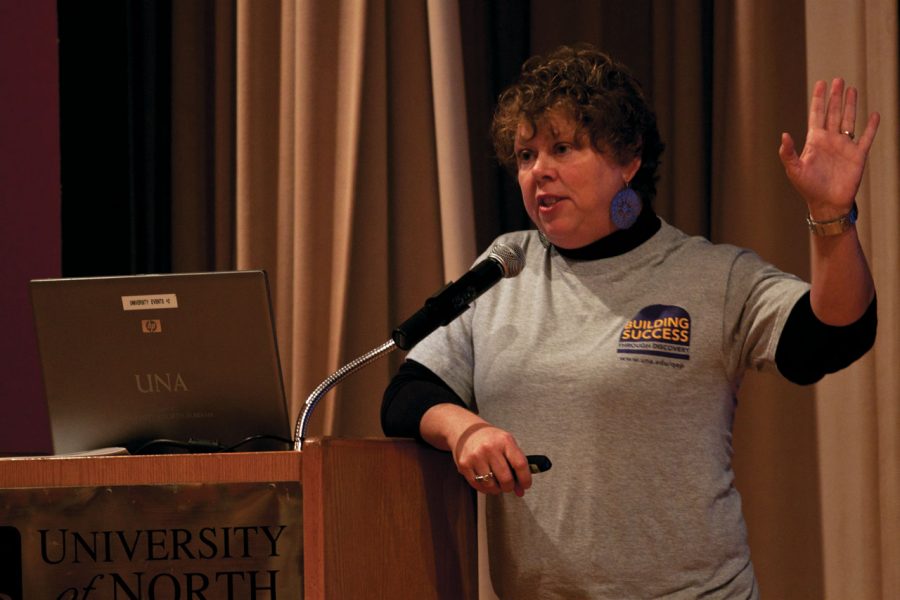UNA under microscope as SACS team evaluates campus
Director of the QEP Lisa Keys-Mathews discusses the university’s quality enhancement plan with students, faculty and staff members in November.
March 1, 2012
Officials with the Southern Association of Colleges and Schools have been on campus this week to evaluate the university as it reaches its 10-year reaccreditation review.
Dr. Lisa Keys-Mathews, director of the quality enhancement plan (QEP), said development of the QEP is an integral part of the renewal process.
“It’s very important that universities receive their reaccreditation because financial aid hinges on that,” Keys-Mathews said. “Your ability to get accepted into graduate schools, professional schools, all require that students come from an accredited university.”
Keys-Mathews said that every 10 years, schools and colleges must apply for reaccreditation from SACS. UNA faculty and staff members have worked on the proposal for 24 months to answer the questions SACS requires in the proposal.
Keys-Mathews said SACS officials only asked a small number of questions about the document for clarification—less than the average number of inquiries most schools receive.
“They came back to us with only eight questions,” Keys-Mathews said. “The average university gets somewhere between 18 and 20. We have done exceptionally well in our compliance for certification.”
The success of the reaccreditation process so far is all due to the leadership of Celia Reynolds, the SACS staff liaison and Collier Librarian, and the leadership of the QEP leadership team, said Keys-Mathews. Dr.
Phillip Bridgmon, chair of the QEP selection and development committees, agrees that UNA officials have gone the extra mile.
“Faculty, staff, and administrators have been engaged significantly since 2009 in anticipation of our 2012 site visit,” he said. “The process has involved many nights, weekends, and extra duties for many faculty and staff.”
Bridgmon said that renewal is essential for the University to continue its operation in good standing with our accrediting body, and the United States Department of Education.” Bridgmon gives credit to the QEP team for his hopeful outlook in the reaccreditation.
“Our QEP director, Lisa Keys-Mathews, has worked more than overtime on finalizing our plan, including many more meetings with faculty, students, staff, and administration,” he said. “I have been fortunate to be part of this process due to the cooperation and talent everyone brought to what I believe will be a very successful outcome for UNA and our students.”
Caleb Banks, student representative on the QEP committee, said that the QEP is a part of the reaccreditation that is required and will start affecting students next fall. Banks says it is crucial to know the importance of the SACS accreditation.
“We just need to know how important the accreditation is to our university and everyone enrolled there,” Banks said. “The QEP is just one of many aspects assessed by the SACS team and a requirement, but only a part.”
The UNA website provides more information about the QEP, which “ocuses on academic research literacy. The QEP is entitled “Building Success through Discovery: Imagine, Investigate, Communicate” and can be read in full on the UNA website.
Keys-Mathews said that one of the greatest advantages of UNA is the high level of professor-student interaction. According to her, the QEP is meant to enhance the advantage of students being able to participate in research alongside their professors.
The QEP requires no extra classes, but will be worked into the students’ existing curriculum, said Keys-Mathews; research literacy being taught in new ways.











